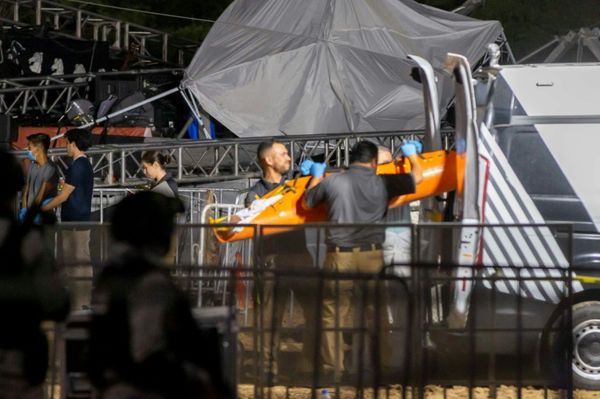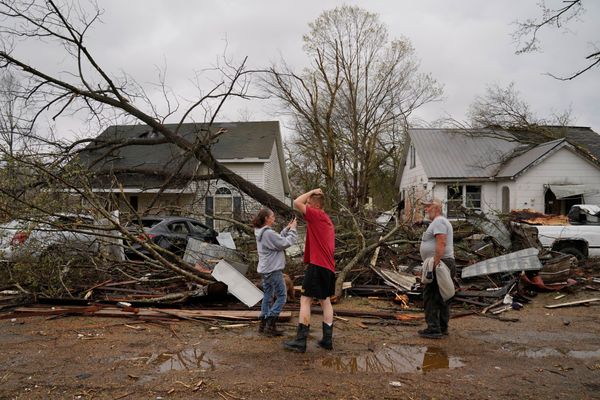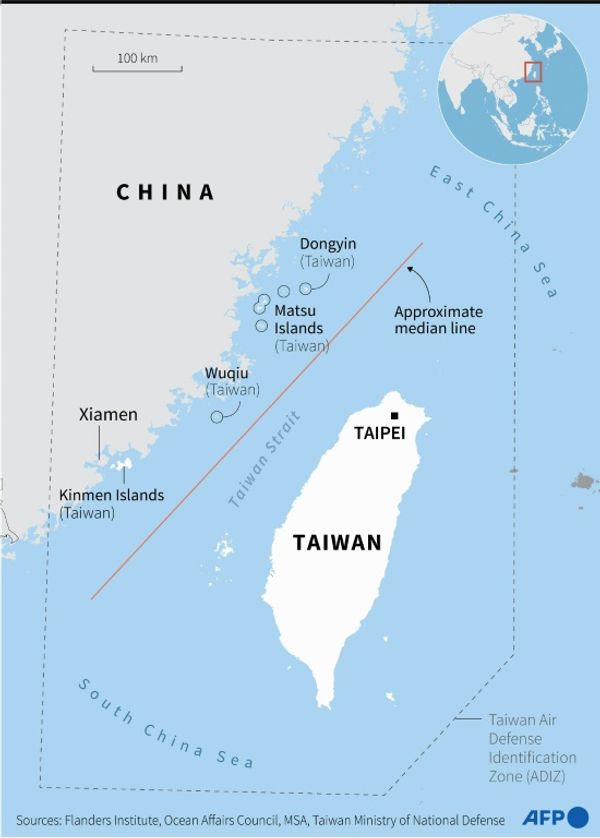A troubled young pop star manipulated and taken advantage of by a sinister impresario.
We've seen it before — and some say we've seen it done much better.
This is the premise of HBO's scandal-ridden series The Idol, which debuted after months of criticism around its sexually graphic content and production process.
Here's why The Idol is one of HBO's most controversial and lowest-rated series.
What's The Idol about?
At the centre of the six-episode show is Lily-Rose Depp, daughter of Johnny Depp, who plays a pop star named Jocelyn. After her mum died of cancer, Jocelyn suffered a nervous breakdown which caused her last tour to be cancelled.
But now, Jocelyn's working on her career comeback with a new album on the horizon.
If you weren't already thinking it — yes, the Britney Spears parallel is evident.
"What Britney and Jocelyn have been through is unique … but universal,” decides Jocelyn's publicist Benjamin (Dan Levy).
Jocelyn is introduced as her army of spin doctors and social media handlers fuss over and about her, reacting to a public-relations crisis created when a very private photo of her leaks online.
Halfway into the first episode, Depp's character has a night out at a club, where she meets Abel Tesfaye’s Tedros.
He's a nightclub owner with a signature look that's regularly referenced throughout the episode: a rat-tail.
Although her assistant (Rachel Sennott) is convinced Tedros is shady, Jocelyn invites him over and lets him listen to her yet-to-be-released new single.
It creates an opening for his Svengali act.
He tells Jocelyn she needs to open up sexually in order to become a convincing singer, initiating the beginning of their questionable relationship.
Who else is in the cast?
The Idol has tapped a roster of rising actors and musicians for the series.
One of the most anticipated is Jennie Kim, member of the K-pop group Blackpink, who plays one of Jocelyn's backup dancers.
Australian singer Troye Sivan also joins as a series regular, playing Jocelyn's creative director.
Other casting announcements include veteran actor Jane Adams, Schitt's Creek's Dan Levy and more.
What's the controversy around The Idol?
There are two main criticisms about the show — the "disturbing" storyline and reported issues with production.
The main source of this comes from a bombshell exposé published by Rolling Stone in March.
It featured anonymous interviews with 13 sources close to the show's production.
Let's break down what the interviews revealed.
Original showrunner pushed out
The Idol had been in development since June 2021 — two years ago — with Amy Seimetz as the show's original showrunner.
Seimetz was given "half-finished scripts" and a tight schedule, according to an unnamed source quoted by Rolling Stone.
The anonymous source claimed Seimetz was pushed out because Tesfaye was concerned the show was leaning too much into a "female perspective".
The entire series was then reshot with Sam Levinson — the creator behind the gritty high school drama Euphoria — as showrunner.
In the Rolling Stone reports, some crew members claimed the production then descended into "chaos".
Criticised as 'a toxic man's fantasy'
The Idol was initially billed as a look into the seedy underbelly of Hollywood and the music industry.
“Instead of subtly skewering the misogynistic and predatory nature of the business, The Idol became a forbidden love story — the stuff of a toxic man’s fantasy," says The Hollywood Reporter’s Lovia Gyarkye.
Levinson allegedly took the show in a more sexually "disturbing" direction, including more explicit content and nudity.
"It was a show about a woman who was finding herself sexually, turned into a show about a man who gets to abuse this woman and she loves it," another source said.
Did HBO respond?
The network addressed the criticism in a statement to Variety.
“The creative team has been committed to creating a safe, collaborative, and mutually respectful working environment, and last year, the team made creative changes they felt were in the best interest of both the production and the cast and crew.”
How did the cast respond?
Let's just say it went a few different ways.
Tesfaye publicly responded on social media with a clip of a scene from the show in which his character calls Rolling Stone "a little irrelevant".
He also captioned the clip, "Rolling Stone did we upset you?"
In his June cover story for Vanity Fair, Tesfaye elaborated on his tweet.
"I thought the article was ridiculous," he told Vanity Fair.
"I wanted to give a ridiculous response to it."
As for Depp, she said it was "a little sad and disheartening to see mean, false things said about somebody you care about" at a press conference after the show's Cannes Film Festival premiere.
"It was not reflective at all of my experience shooting the show."
In a statement provided to Vanity Fair in March, Depp said:
"Never have I felt more supported or respected in a creative space, my input and opinions more valued.
"Working with Sam is a true collaboration in every way — it matters to him, more than anything, not only what his actors think about the work, but how we feel performing it. He hires people whose work he esteems and has always created an environment in which I felt seen, heard, and appreciated."
Jane Adams, who plays music executive Nikki in the show, argued that by focusing so much on Jocelyn's sexuality, critics have been "missing a wonderful opportunity to praise an incredible woman that I had an incredible time working with".
"Everything becomes about politics and it's boring," she told The Guardian earlier this month.
"Sam’s a storyteller. Certain stories are upsetting or challenging. But are we going to censor them? I think they should be more aware of what they’re actually calling for."
At the post-Cannes press conference, Levinson said, "We know we're making a show that's provocative".
When he first read the Rolling Stone article, he said he told his wife: "We're about to have the biggest show of the summer."
"In terms of the specifics of what was in the article, it just felt completely foreign to me," Levinson added.
Is the show any good?
Whether a show is good or not is entirely subjective, but the overwhelming opinion appears to be quite negative.
Less than 24 hours after it was released, users panned the series on review aggregation site Rotten Tomatoes.
Currently, it's got a score of 27 per cent.
Compare that to other HBO shows such as The White Lotus with 90 per cent, or Euphoria with 80 per cent.
With the controversy surrounding its explicit content, The Idol has received some rather dismal ratings.
And the majority of critics weren't kind.
"The ultimate try-hard TV," Rebecca Nicholson from The Guardian described it in her review.
"It plays like a sordid male fantasy," said Peter Debruge from Variety.
Audiences want stories told 'carefully'
Throughout the 80s to the mid-2000s, "you could forgive anything if it was at least interesting," says Dr Maura Edmond from Monash University.
Dr Edmond's research addresses changes in contemporary media and arts, with a focus on policy and gender.
"Over the last decade, there has been a huge paradigm shift and now, I think the primary question we ask ourselves about art and culture, is 'is it careful?'," she says.
"Is it careful with what it says and how it represents the people involved? Does it tread carefully with the lives and labour of those involved in making it — the writers, caterers and make-up artists?"
After watching the first episode, Dr Edmond says The Idol is harking back to this era of "is it interesting?" by being intentionally sleazy and risque.
"Older characters in the show encourage sleaziness, while the younger characters appear worried more about "the price of safety," she says.
"I don't think it's a successful satire, but it's certainly self-aware."
'Kink and sleaze' not enough to deter people from The Idol
Dr Edmond spent years talking to audiences about cancel culture and the ethics of media consumption.
"I am fascinated with the various ways people come to make assessments about what they will or won't consume, where they draw the line and why."
Dr Edmond says very rarely is it solely a matter of representation, or a problematic male gaze.
"I don't imagine depictions of kink and sleaze on its own is enough to deter people from a show like The Idol," she says.
"What's more interesting to me is the conversation about the production itself, how the cast and crew felt they were treated.
"Based on my research, that's actually what might result in viewers turning off."






